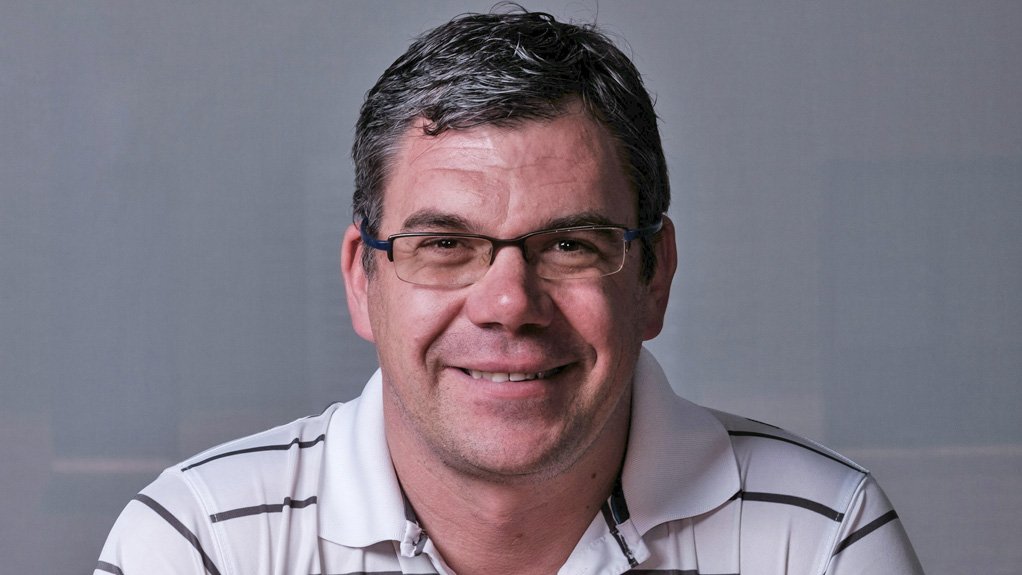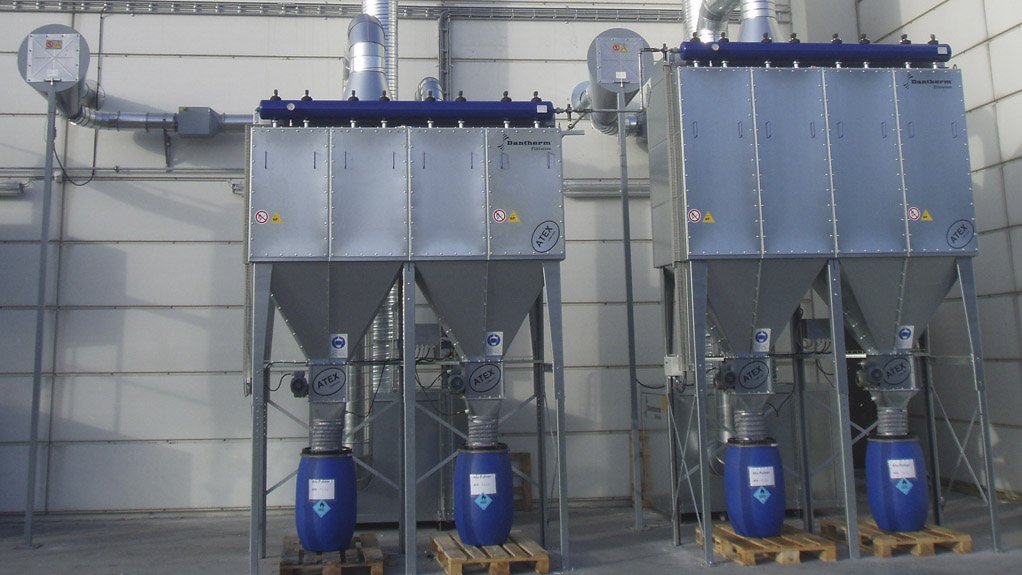Filtration solutions can prevent explosions in food and beverage sector



ANTON HERTENBERGER Manufacturers are often not aware that their environments are extremely explosive
DUST FILTER AND EXTRACTOR The Nederman is a Atex-complient filtration unit, which reduces the risk of explosion significantly
Food processing, involving baking flour, soup powders, milk powder, spices, flavourings and sugar, for instance, can cause highly explosive organic dust, and industrial equipment company Envirox sales manager Anton Hertenberger says its Nederman filtration systems are designed to mitigate explosions at such facilities.
Swedish industrial filtration company Nederman specialises in combustible dust solutions and Envirox designs the filtration solutions, which are built and assembled by Nederman in Sweden.
The filter units are then sent to South Africa, where Envirox distributes them on the local market. Hertenberger says Envirox can design a custom filtration solution within 24 hours.
He explains that a fire is started with oxygen, fuel and ignition – sparks and static discharges can cause an explosion with organic dust as fuel.
Using Atex-compliant filtration units with explosion vent valves and antistatic filtration media, in combination with fans equipped with sparkless inlets, Envirox significantly reduces the risk of explosion.
The Atex directive consists of two European Union directives describing the equipment and work environment allowed in an environment with an explosive atmosphere.
“The biggest problem is that there are too many manufacturers who are not even aware they are working in extremely explosive environments.
“You have to take everything into consideration when you work on a solution for highly explosive factories – it is not only what they do but also how they do it – even what shoes employees wear.
“That’s how technical it gets,” says Hertenberger.
Industry standards indicate that manufacturers that emit dust in facilities with a Kst rating of between 0 and 200 must be equipped with an air filtration system, as these dusts are classified as St 1 dust, which may result in an explosion.
The Kst is the dust deflagration index, and it measures the relative explosion severity, compared with other dusts.
According to Hertenberger a Kst value of between 200 and 300 is highly explosive but a Kst rating of 300 and above is the most dangerous.
Envirox can design filtration solutions that are able to handle all three dust type classifications.
Hertenberger says companies have to use filtration systems that are specified to their requirements, and properly designed, built and assembled, but they are often not even aware of this need.
The Nederman filters consist of extraction arms and hoods which are earthed and connected to a duct line.
The arms extract dust from the atmosphere and carry it to the dust collector at a speed not less than 25 m/s to prevent settling within the duct lines.
The dust is collected in a bin or it goes through a rotary valve for safe discard.
In the highly unlikely event of an explosion in the filter unit, Envirox makes use of a valve which prevents the explosion from propagating back down the line.
The explosion is then safely vented by means of the explosion panels, thereby not harming people or machinery.
He warns that all factories that emit combustible dust should be equipped with Atex- compliant dust extraction and filtration systems to prevent explosion.
The filtration systems also assist in preventing cross contamination in production lines and keeping factories clean.
The South African Bureau for Standards (SABS) is extremely strict in terms of hygiene standards in the South African food and beverage industry.
TheSABS 10049:2012 standard states: “The practices described in this standard are aimed at assisting the food-handling organisation to manage its operations to prevent or control the contamination of food, either through direct contamination or as a result of cross-contamination.”
Hertenberger adds that conditions must almost be sterile to prevent contamination across production lines, so manufacturers benefit doubly by ensuring that dust is removed from the immediate atmosphere, as it can contaminate other products.
Article Enquiry
Email Article
Save Article
Feedback
To advertise email advertising@creamermedia.co.za or click here
Press Office
Announcements
What's On
Subscribe to improve your user experience...
Option 1 (equivalent of R125 a month):
Receive a weekly copy of Creamer Media's Engineering News & Mining Weekly magazine
(print copy for those in South Africa and e-magazine for those outside of South Africa)
Receive daily email newsletters
Access to full search results
Access archive of magazine back copies
Access to Projects in Progress
Access to ONE Research Report of your choice in PDF format
Option 2 (equivalent of R375 a month):
All benefits from Option 1
PLUS
Access to Creamer Media's Research Channel Africa for ALL Research Reports, in PDF format, on various industrial and mining sectors
including Electricity; Water; Energy Transition; Hydrogen; Roads, Rail and Ports; Coal; Gold; Platinum; Battery Metals; etc.
Already a subscriber?
Forgotten your password?
Receive weekly copy of Creamer Media's Engineering News & Mining Weekly magazine (print copy for those in South Africa and e-magazine for those outside of South Africa)
➕
Recieve daily email newsletters
➕
Access to full search results
➕
Access archive of magazine back copies
➕
Access to Projects in Progress
➕
Access to ONE Research Report of your choice in PDF format
RESEARCH CHANNEL AFRICA
R4500 (equivalent of R375 a month)
SUBSCRIBEAll benefits from Option 1
➕
Access to Creamer Media's Research Channel Africa for ALL Research Reports on various industrial and mining sectors, in PDF format, including on:
Electricity
➕
Water
➕
Energy Transition
➕
Hydrogen
➕
Roads, Rail and Ports
➕
Coal
➕
Gold
➕
Platinum
➕
Battery Metals
➕
etc.
Receive all benefits from Option 1 or Option 2 delivered to numerous people at your company
➕
Multiple User names and Passwords for simultaneous log-ins
➕
Intranet integration access to all in your organisation



















